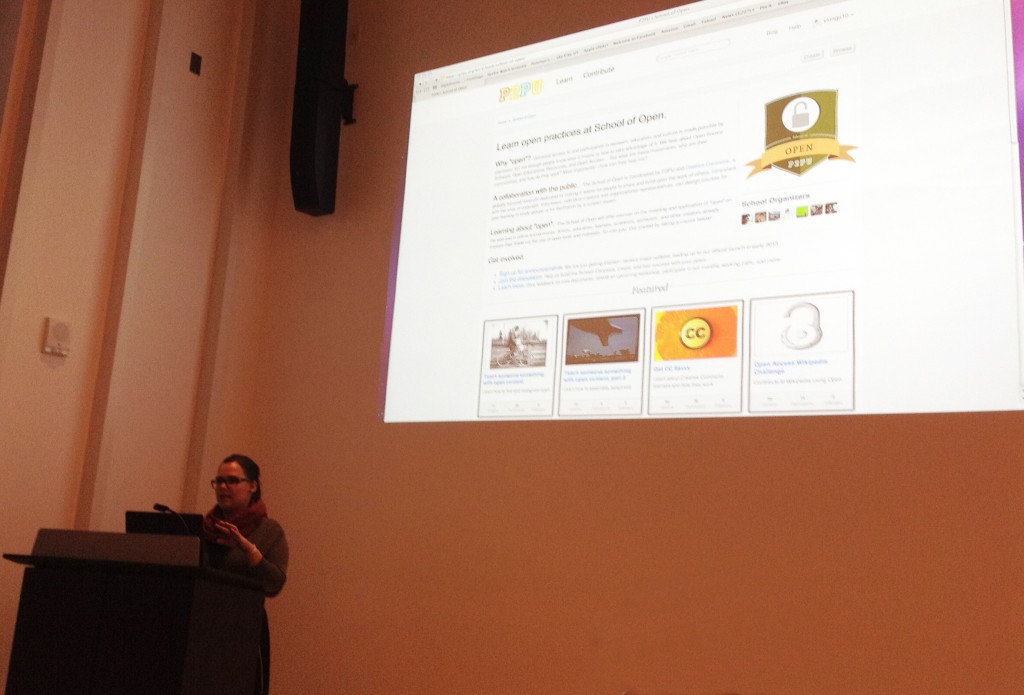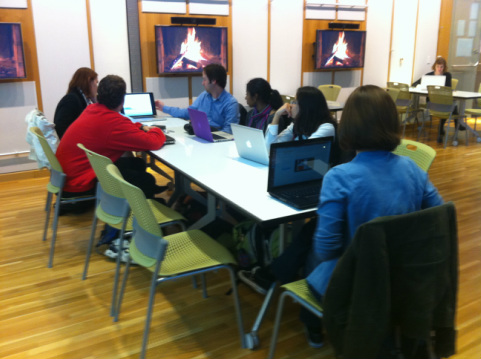On February 2nd, 2013 the second annual QuasiCon was held. This is a really wonderful student driven "quasi-conference" at the University of Michigan.
The format of the event aims to promote attendee driven conversations in the first half of the day and then more formal presentations in the afternoon. The morning begins by people breaking out into small groups, brainstorming ideas and areas of interest and then coming together as a whole group again and voting on the top 2 ideas from each group. Having attended the first QuasiCon and now this one, I can honestly say this time brings up very interesting topics and even more interesting discussions! One I remember from last year was "sexy technology" and this year we had topics that ranged from "librarians in fiction" to a discussion on wikipedia and education. This year, QuasiCon added a new element, badging the conference to recognize the participation of attendees....but I will be posting another blog entry on that alone since I was lucky enough to be a part of its implementation!
This first half was a fantastic start to the day this year. It was great getting to have conversations and really hone in on areas and ideas we wanted to discuss as students and professionals. QuasiCon attracts a diverse group of information professionals and so many areas of expertise that the conversations can go in so many directions and offer many insights. In one of the sessions I attended that dealt with wikipedia and its role in education, the discussion ranged from stigmas in academia to the worrisome demographics of Wikipedia editors.
The second half of the conference was a little more formal in its scheduling and planned sessions. I was able to attend a session on Diversity in Librarianship by Crystal Jolly, a lightening talk on badging by JJ Pionke, and a talk by SI student and Ford Library's Wikipedian in Residence, Michael Berera and Ann Arborite, Ed Vielmetti. I learned some new things about diversity in the field of librarianship and engagement around Detroit and also got to sit in on sessions I am already very interested in: the badging discussion that introduced attendees on a new eBook project that JJ Pionke is working on and the Wikipedia and Ann Arbor Wiki talk that discussed engagement, crowd sourcing and the role of Wikis in communities.
I was also on a panel in the afternoon. The panel I participated in with three of my peers was on Makerspaces in different settings: Higher education, community, and public school. Feel free to watch the presentation below:
The format of the event aims to promote attendee driven conversations in the first half of the day and then more formal presentations in the afternoon. The morning begins by people breaking out into small groups, brainstorming ideas and areas of interest and then coming together as a whole group again and voting on the top 2 ideas from each group. Having attended the first QuasiCon and now this one, I can honestly say this time brings up very interesting topics and even more interesting discussions! One I remember from last year was "sexy technology" and this year we had topics that ranged from "librarians in fiction" to a discussion on wikipedia and education. This year, QuasiCon added a new element, badging the conference to recognize the participation of attendees....but I will be posting another blog entry on that alone since I was lucky enough to be a part of its implementation!
This first half was a fantastic start to the day this year. It was great getting to have conversations and really hone in on areas and ideas we wanted to discuss as students and professionals. QuasiCon attracts a diverse group of information professionals and so many areas of expertise that the conversations can go in so many directions and offer many insights. In one of the sessions I attended that dealt with wikipedia and its role in education, the discussion ranged from stigmas in academia to the worrisome demographics of Wikipedia editors.
The second half of the conference was a little more formal in its scheduling and planned sessions. I was able to attend a session on Diversity in Librarianship by Crystal Jolly, a lightening talk on badging by JJ Pionke, and a talk by SI student and Ford Library's Wikipedian in Residence, Michael Berera and Ann Arborite, Ed Vielmetti. I learned some new things about diversity in the field of librarianship and engagement around Detroit and also got to sit in on sessions I am already very interested in: the badging discussion that introduced attendees on a new eBook project that JJ Pionke is working on and the Wikipedia and Ann Arbor Wiki talk that discussed engagement, crowd sourcing and the role of Wikis in communities.
I was also on a panel in the afternoon. The panel I participated in with three of my peers was on Makerspaces in different settings: Higher education, community, and public school. Feel free to watch the presentation below:
I am happy to have been able to experience this great meeting of the minds that shows the dedication and interest of the students at the School of Information. The last two years have been a great kickoff and I can't wait to see where it keeps going in the future.


 RSS Feed
RSS Feed